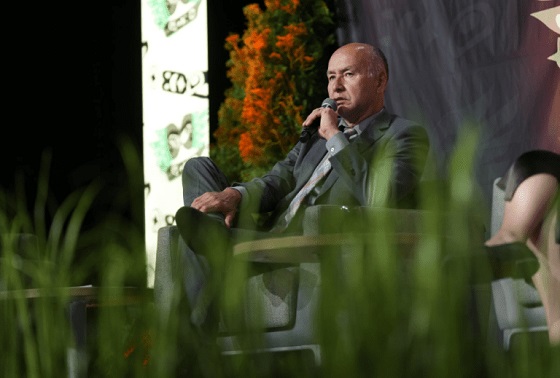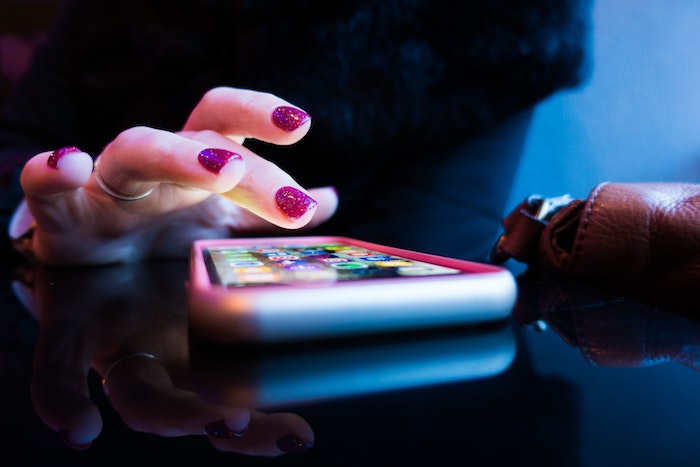COVID-19
BC Conservative leader regrets getting COVID shots, says mandates were about control
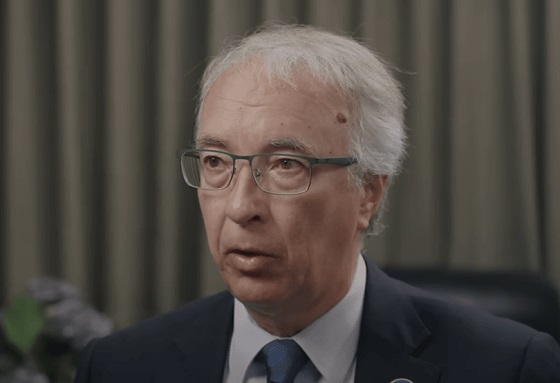
From LifeSiteNews
‘I’ve had three shots of the vaccine. I wish I hadn’t, quite frankly,’ B.C. Conservative leader John Rustad said in a recently resurfaced video.
Footage of British Columbia Conservative leader and premier hopeful John Rustad shows him saying he regrets taking the experimental COVID-19 vaccines and thinks government mandates were aimed at controlling the population.
In an interview, recorded in June but publicized September 23 by Rustad’s political rival, the New Democratic Party (NDP), in a seeming attempt to smear him, the B.C. Conservative leader explained that he regrets taking the COVID vaccines and that mandates instituted in the province at the time weren’t about health, but control.
“I’ve had three shots of the vaccine. I wish I hadn’t, quite frankly,” Rustad said.
“That’s one of the things that has changed in my thinking. The so-called vaccine, the COVID mRNA shots,” he said, recalling a conversation with B.C. Provincial Health Officer Dr. Bonnie Henry.
Rustad said the conversation with Henry left him feeling that something wasn’t “quite right.”
“When I talked to Bonnie Henry about it, I started to realize that it wasn’t so much about trying to get herd immunity or trying to stop the spread, but it was more around shaping opinion and control on the population,” Rustad said.
In July of this year, John Rustad met with an anti-vax group that is suing Dr. Bonnie Henry.
He said he regrets getting “the so-called vaccine” and accuses Dr. Henry of using it for “control on the population.” pic.twitter.com/m2h3IHAyK0
— BC NDP (@bcndp) September 23, 2024
Henry became infamous in B.C. thanks to her vaccine policy which prevented unvaccinated health care workers from working for nearly three years.
Finally, in July of this year, Henry announced that the province is no longer in a public health emergency and is revoking all COVID regulations, including the vaccine mandate.
The decision came as a surprise after Henry had seemed determined to keep British Columbia’s vaccine mandate regardless of the hundreds of health care workers who had been unable to work since 2021 despite the ongoing worker shortage in the sector.
In May, Henry’s mandate was challenged in court. The judge ruled that healthcare workers can still be mandated to receive the experimental COVID injections as a condition of employment, but decided that those working remotely are no longer bound by the unscientific rule.
Hundreds of British Columbia healthcare workers are still suing Henry over the mandate which prevented them from working.
While Rustad’s comments condemning Henry were made during a July 23 interview with the B.C. Public Service Employees for Freedom which opposes vaccine mandates, the resurfacing of the footage by the NDP ahead of the provincial election this fall seems to suggest the far-left party assumed Rustad’s comments would paint him in a bad light.
However, the video seems to have had the opposite effect, as many online pointed to the video as a reason to vote for Rustad.
” Y’all don’t realize this will help Rustad’s campaign lol,” pro-freedom nurse Amy Hamm commented.
Y’all don’t realize this will help Rustad’s campaign lol
— Amy Eileen Hamm (@preta_6) September 23, 2024
“This isn’t the win you think it is,” another wrote. “Lots of people regret getting the #Covid_19 ‘vaccines.’ They prevented neither infection nor transmission and your ‘vaccine’ did not ‘keep others safe’ no matter how much you want to believe it.”
This isn’t the win you think it is.
Lots of people regret getting the #Covid_19 “vaccines”
They prevented neither infection nor transmission and your “vaccine” did not “keep others safe” no matter how much you want to believe it.
The market for these products has crashed.…
— Karl Harrison (@KarlDHarrison) September 23, 2024
COVID-19
The Trials of Liberty: What the Truckers Taught Canada About Power and Protest

Half the country still believes the convoy was a menace; the other half thinks it was a mirror that showed how fragile our freedoms had become.
This Thanksgiving I am grateful for many things. The truckers who stood up to injustice are among them.
When the first rigs rolled toward Ottawa in January 2022, the air was sharp, but not as sharp as the mood of the men and women behind the wheels. They were not radicals. Seeing a CBC a campaign of disinformation about them begin as soon as their trek started, even when Ottawa political operatives hadn’t yet heard, I started following several of them on their social media.
They were truckers, small business owners, independent contractors, and working Canadians who had spent two years hauling the essentials that kept a paralyzed nation alive. They were the same people politicians, including Prime Minister Trudeau, had called “heroes” in 2020. By 2022, they had become “threats.”
The Freedom Convoy was born from exhaustion with naked hypocrisy. The federal government that praised them for risking exposure on the road now barred the unvaccinated from crossing borders or even earning a living. Many in provincial governments cheered Ottawa on. The same officials who flew to foreign conferences maskless or sat in private terraces to dine, let’s recall, still forced toddlers to wear masks in daycare. Public servants worked from home while police fined citizens for walking in parks.
These contradictions were not trivial; they were models of tyrannical rule. They told ordinary people that rules were for the ruled, not for rulers.
By late 2021, Canada’s pandemic response had hardened into a hysterical moral regime. Compliance became a measure of virtue, not prudence. Citizens who questioned the mandates were mocked as conspiracy theorists. Those who questioned vaccine efficacy were treated as fools; those who refused vaccination were treated as contagious heretics. Even science was no longer scientific. When data showed that vaccines did not prevent transmission, officials changed definitions instead of policies. The regime confused authority with truth. One former provincial premier just this week was still hailing the miracle of “life-saving” COVID vaccines.
For truckers, the breaking point came with the federal vaccine mandate for cross-border transport. Many had already complied with provincial rules and workplace testing. Others had recovered from COVID and had natural immunity that the government refused to recognize. To them, the new rule was not about safety; it was about humiliation. It said, “Obey, or you are unfit to work.”
So they drove.
Donna Laframboise, one of the rare journalists who works for citizens instead of sponsors, described the convoy in her book Thank You, Truckers! with gratitude and awe. She saw not a mob but a moral statement. She showcased for us Canadians who refused to live by lies. Their horns announced what polite society whispered: the emergency had become a creepy habit, and the habit had become a tool of control.
When the convoy reached Ottawa, it was messy, loud, and human. There was singing, prayer, laughter, dancing and some foolishness, but also remarkable discipline. For three weeks, amid frigid temperatures and rising tension, there were no riots, no arsons, no looting. In a country that once prized civility, that should have earned respect.
Instead, it attracted the media’s and government’s contempt.
The Trudeau government, rattled by its own public failures, sprung to portray the protest as a national security threat. Ministers invoked language fit for wartime. The Prime Minister, who had initially fled the city claiming to have tested positive, returned to declare that Canadians were under siege by “racists” and “misogynists.” The accusations were as reckless as they were false. The government’s real grievance was not chaos but defiance.
Then came the Emergencies Act. Designed for war, invasion, or insurrection, it was now deployed against citizens with flags and thermoses. Bank accounts were frozen without charge or trial. Insurance policies were suspended. Police weilding clubs were unleashed against unarmed citizens. The federal government did not enforce the law; it improvised it.
A faltering government declared itself the victim of its citizens. The Emergency declaration was not a reaction to danger; it was a confession of political insecurity. It exposed a leadership that could not tolerate dissent and recast obedience for peace.
Haultain Research is a reader-supported publication.
To receive new posts, express your gratitude and support our work, consider becoming a a paid subscriber.
The convoy’s organizers, who kept the protest largely peaceful, were arrested and prosecuted as though they had plotted sedition. They were charged for holding the line, not for breaking it. The state’s behaviour was vindictive, not judicial. Prosecutors went along with it, and so did courts.
In a healthy democracy, such political trials would have shaken Parliament to its core. Legislators would have demanded justification for the use of emergency powers. The press would have asked precisely which law had been broken. Citizens would have debated the limits of government in times of fear, times which seem to continue just under the radar.
Not much of that happened.
Canada’s institutions have grown timid. The press is subsidized and more subservient. The courts happily defer to the administrative state. Law enforcement has learned to follow politics before principle. Academics have been lost for about generation. Under such conditions, how can citizens object to unscientific and coercive policies? What options remain when every channel of dissent—media, science, judiciary, and law enforcement—is captured or cowed?
The convoy’s protest, let’s remember, was not the first major disruption in the Trudeau years. A year earlier, Indigenous activists blocked rail lines and highways in solidarity with Wet’suwet’en hereditary chiefs opposed to a pipeline. The blockades cost the economy millions. They were called “a national conversation.” Few arrests, no frozen accounts, no moral panic.
In 2020, Black Lives Matter marches were cheered by politicians and news anchors. Some protests were peaceful, others destructive. Yet they were treated as expressions of justice, not extremism.
Even today, pro-Hamas Palestinian demonstrations that include violence and intimidation of Jewish citizens are tolerated with a shrug. The police stand back, bring them coffee, citing “the right to protest.”
Why, then, was the Freedom Convoy treated as a crisis of state?
In a liberal democracy, protest is not rebellion. It is a civic instrument, a reminder that authority is contingent. When a government punishes peaceful protest because it disapproves of the message, it turns democracy into décor.
The trials of the convoy organizers are therefore not about law but about legitimacy. Each conviction signals that protest is permitted only when it pleases the powerful. This is the logic of every soft tyranny: it criminalizes opposition while decorating itself with the vocabulary of rights. I see this daily in Nicaragua, my native land.
The truckers’ protest revealed what the pandemic concealed. The COVID regime was unscientific and incoherent. It punished truckers who worked alone in their cabs while allowing politicians to mingle maskless at conferences. It barred unvaccinated Canadians from air travel but allowed infected citizens to cross borders with the proper paperwork. It closed playgrounds and churches while keeping liquor stores open.
These contradictions were not mistakes; they were instruments of obedience. Each absurd rule tested how much submission people would endure.
The truckers said, “Enough.” I am grateful that they did.
For that, Chris Barber (Big Red) and Tamara Lich  are still being punished. Their trials have now concluded, save for possible appeals, yet their quiet defiance remains one of the few honest moments in recent Canadian history. It showed that courage is still possible, even the state seems to forbid reason.
are still being punished. Their trials have now concluded, save for possible appeals, yet their quiet defiance remains one of the few honest moments in recent Canadian history. It showed that courage is still possible, even the state seems to forbid reason.
The government’s response revealed the opposite: that fear, once politicized, is never surrendered willingly. The state that learned to rule through emergency will not soon unlearn it. They cling to its uses still.
Canada lives with the legacy of that winter today. The trials are finished, but the divisions persist. Half the country still believes the convoy was a menace; the other half thinks it was a mirror that showed how fragile our freedoms had become.
Trudeau’s government is no more, yet the spirit of his politics lingers. He did not create the divisions by accident. He cultivated them as a strategy of control. The country that left him behind is also less free, less trusting, and less united than it was before the horns sounded in Ottawa. Carney’s government is Trudeau’s heir.
The trials and sentencing measure the distance between the Canada we imagined and the one we inhabit.
The truckers’ convoy was imperfect, yet profoundly democratic. It stood for the right of citizens to say no to a government that had forgotten how to hear them. The echo of that refusal still moves down the Trans-Canada Highway. It is the sound of liberty idling in the cold, waiting for a green light that will not soon come.
This Thanksgiving, I am grateful for the abounding love and understanding in my life. I am grateful for my spirited children and their children. I am grateful for my nonagenarian father and for my siblings. I’m grateful for the legion of aunts, uncles, cousins, nieces and nephews on all sides of the family. I am grateful for loyal friendships and for my colleagues and coworkers who share the quest for a freer country. I’m grateful to my adoptive Alberta, and Albertans, also struggling to be strong and free.
I am grateful for the Truckers, wherever they came from, for their courage.
Haultain Research is a reader-supported publication.
To receive new posts, express your gratitude and support our work, consider becoming a a paid subscriber.
COVID-19
Tamara Lich says she has no ‘remorse,’ no reason to apologize for leading Freedom Convoy
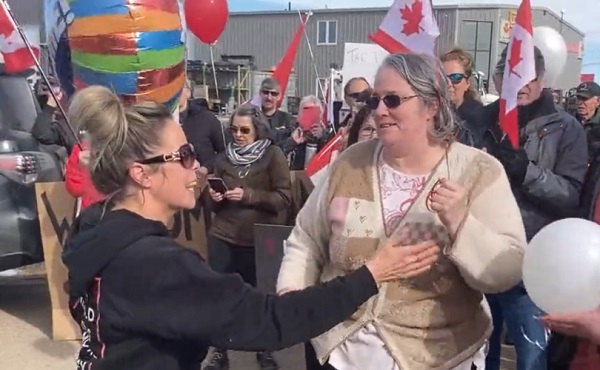
From LifeSiteNews
‘To whom shall I apologize? Thousands of Canadians who stopped planning to take their own lives or were able to return to their jobs, kiss dying loved ones or have families over for Thanksgiving?’
Freedom Convoy leader Tamara Lich, reflecting on her recent house arrest verdict, said she has no “remorse” and will not “apologize” for leading a movement that demanded an end to all COVID mandates.
Lich revealed in an X post this week that in conversations with her lawyer, Lawrence Greenspon, over the past few months, she told him, “I would not, and could not, express remorse as it would be dishonest and disingenuous.”
“To whom shall I apologize? The thousands of Canadians who stopped planning to take their own lives when the convoy started? To the thousands of Canadians who were able to return to their jobs? Or should I apologize to all the Canadians who can kiss their dying loved ones or have their families over for Thanksgiving?” she observed.
On October 7, Ontario Court Justice Heather Perkins-McVey sentenced Lich and Chris Barber to 18 months’ house arrest after being convicted earlier in the year convicted of “mischief.”
As reported by LifeSiteNews, the Canadian government was hoping to put Lich in jail for no less than seven years and Barber for eight years for their roles in the 2022 protests against COVID mandates.
Interestingly, Perkins-McVey said about Lich and Barber during the sentencing, “They came with the noblest of intent and did not advocate for violence.”
In Lich’s X post, she noted that while she has “no doubt” some citizens of Ottawa “felt afraid, threatened and terrorized” by the protests, she blamed the Liberal government under former Prime Minister Justin Trudeau.
“How could they not when their mayor and politicians were labeling us as an angry mob coming to overthrow the government before we even left Alberta?” she wrote.
“Do I feel bad for these people? Of course I do. I wish no ill will upon anyone. However, it was their very own leaders who lied to them and misled them. There are citizens in Ottawa genuinely afraid of working-class Canadians, who had never met a trucker or an oil patch worker.”
Lich noted how she told her lawyer that she would “serve 100 years in prison before I will ever apologize.”
Specifically, Barber was handed an 18-month conditional sentence, with a concurrent three-month sentence for counseling disobedience of a court order that can be served in the community.
Lich was given 18 months less time already spent in custody, amounting to 15 1/2 months.
Both Lich and Barber must remain in their house for the first 12 months except for medical emergencies and certain appointments. They are allowed to work and can leave their house for certain permitted activities for up to five hours once a week. They were also given a curfew and 100 hours of community service.
As reported by LifeSiteNews, Barber thanked Conservative MP Leslyn Lewis for “speaking up” in support of him and Canadians’ freedom rights after he and Lich were sentenced.
LifeSiteNews reported that Conservative Party leader Pierre Poilievre offered his thoughts on the sentencing, wishing them a “peaceful” life while stopping short of blasting the sentence as his fellow MPs did.
In early 2022, the Freedom Convoy saw thousands of Canadians from coast to coast come to Ottawa to demand an end to COVID mandates in all forms. Despite the peaceful nature of the protest, Trudeau’s government enacted the never-before-used Emergencies Act (EA) on February 14, 2022.
-
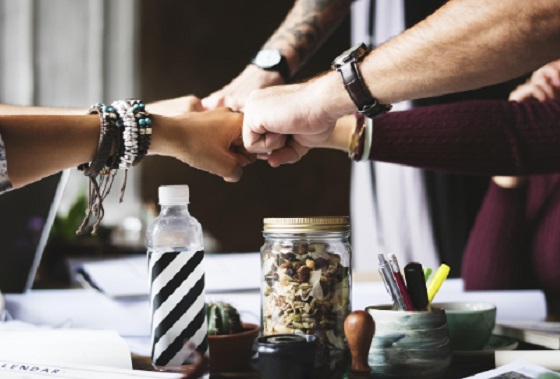
 Also Interesting2 days ago
Also Interesting2 days agoLocal, Online, and Booming: The Business Shift Happening Across Alberta
-
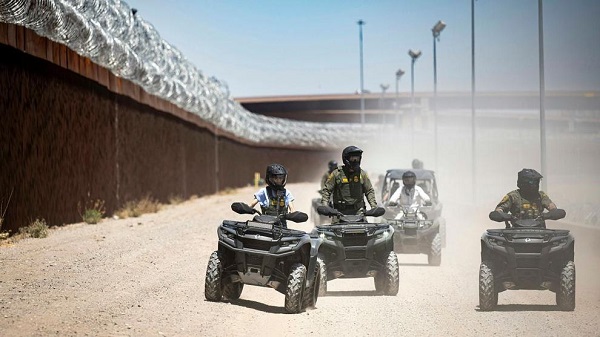
 illegal immigration1 day ago
illegal immigration1 day ago$4.5B awarded in new contracts to build Smart Wall along southwest border
-

 Media1 day ago
Media1 day agoResponse to any budget sleight of hand will determine which audience media have decided to serve
-
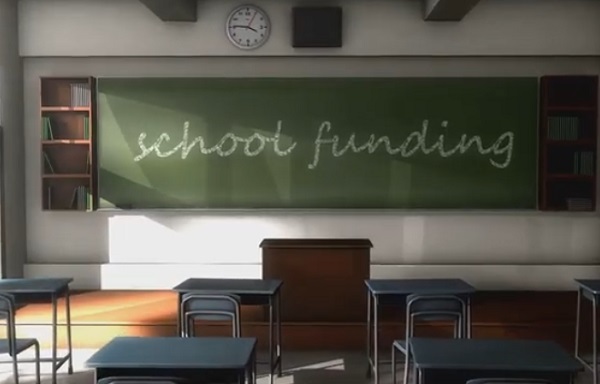
 Education1 day ago
Education1 day agoClassroom Size Isn’t The Real Issue
-
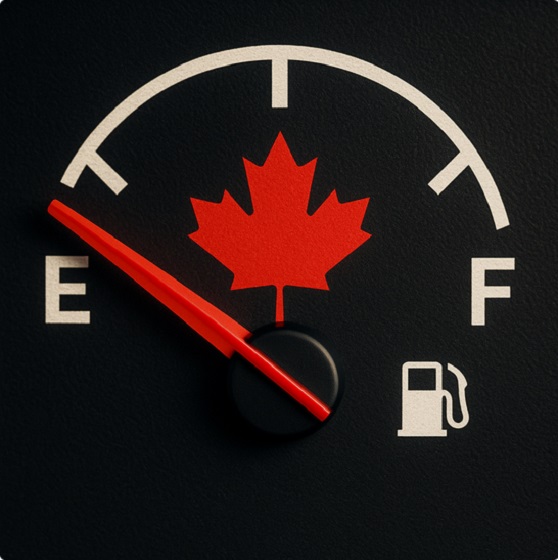
 Frontier Centre for Public Policy1 day ago
Frontier Centre for Public Policy1 day agoCanada’s Democracy Is Running On Fumes
-
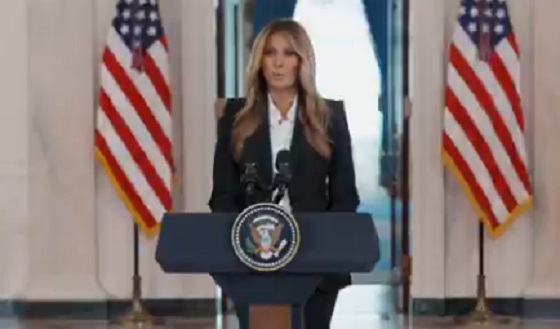
 International1 day ago
International1 day agoMelania Trump quietly reunites children divided by Ukraine war
-
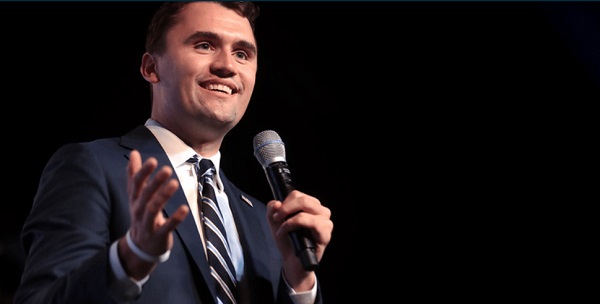
 C2C Journal7 hours ago
C2C Journal7 hours agoCharlie Kirk and the Fragility of Civic Peace
-

 Business9 hours ago
Business9 hours agoUN, Gates Foundation push for digital ID across 50 nations by 2028





